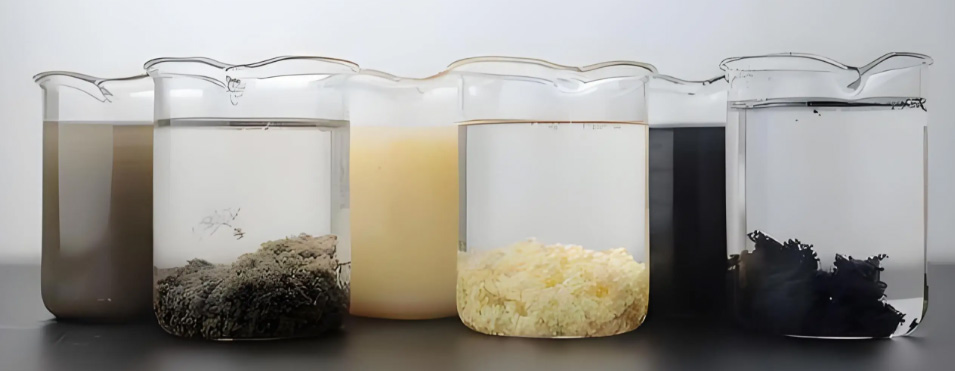Exploring Common Pool Flocculants: Essential Aids in Water Treatment
In the realm of water management, maintaining crystal-clear and safe water is a top priority, especially in swimming pools, wastewater treatment, and industrial processes. Flocculants are indispensable chemicals that facilitate this by encouraging suspended particles—such as dirt, algae, and organic matter—to clump together into larger aggregates, or "flocs," which can then be easily filtered or settled out. This process, known as flocculation, enhances water clarity and purity. Pool flocculants are generally classified into two main categories based on their chemical makeup: inorganic and organic. In this article, we delve into these types, their specific examples, and emerging innovations in flocculant technology, highlighting their critical role in modern water treatment.

The Power of Inorganic Flocculants
Inorganic flocculants are staples in water treatment due to their reliability, affordability, and broad applicability. They primarily consist of metal salts, particularly those of aluminum and iron, which work by destabilizing colloidal particles in water through charge neutralization and adsorption.
Aluminum Salt Flocculants
Aluminum-based flocculants, such as Aluminum Sulfate, are among the most widely used. These compounds are highly effective in both industrial wastewater and domestic sewage treatment. Their advantages include high efficiency in removing turbidity, strong adaptability to varying pH and temperature conditions, and cost-effectiveness. For instance, Aluminum Sulfate forms aluminum hydroxide flocs that trap impurities, making it ideal for clarifying pool water after heavy use or storms.
Iron Salt Flocculants
Iron-based options, like ferrous sulfate and polyferric sulfate, excel in specific scenarios. They are particularly adept at handling cold or low-turbidity water sources, where aluminum salts might underperform. Polyferric sulfate, for example, offers rapid flocculation and produces denser flocs that settle quickly, reducing treatment time and improving overall water quality in pools and treatment plants.
Composite Inorganic Flocculants
To combine the strengths of aluminum and iron salts, composite formulations like polyaluminum ferric chloride have been developed. These advanced flocculants provide a wider pH operating range and superior coagulation performance, making them versatile for complex water conditions. They minimize sludge production and enhance removal of organic pollutants, offering an efficient solution for modern pool maintenance where multiple contaminants may be present.
Inorganic flocculants are favored for their robustness and economic viability, but they can sometimes lead to residual metal ions in treated water, necessitating careful dosing.
The Versatility of Organic Flocculants
Organic flocculants offer a complementary approach, often providing higher specificity and lower dosages compared to inorganics. They are divided into natural and synthetic polymers, which bridge particles together through long-chain molecules.
Natural Organic Polymer Flocculants
Derived from renewable sources, natural flocculants like starch and chitosan are environmentally friendly options. Starch-based flocculants are abundant and inexpensive, making them suitable for large-scale applications. Chitosan, sourced from crustacean shells, is biodegradable and effective in removing heavy metals and dyes. While their coagulation power is generally milder than synthetics, they appeal to eco-conscious pool operators seeking sustainable alternatives.
Synthetic Organic Polymer Flocculants
Synthetic polymers, such as polyacrylamide (PAM) and polyvinyl alcohol (PVA), dominate in high-performance scenarios. PAM, available in anionic, cationic, or non-ionic forms, excels at forming large, strong flocs with minimal dosage—often just parts per million. This efficiency translates to excellent adaptability across diverse water types, from acidic to alkaline. However, their higher production costs and potential for residual monomers require precise application to avoid environmental concerns.
Organic flocculants shine in scenarios demanding fine-tuned control, such as in pools with organic debris from swimmers or environmental factors.
Glimpse into Novel Flocculants
The water treatment industry is innovating rapidly, with novel flocculants addressing limitations of traditional options. Bioflocculants, produced by microorganisms like bacteria or fungi, offer biodegradable, non-toxic alternatives with high efficiency in removing turbidity and pathogens. For example, microbial polysaccharides can achieve flocculation rates comparable to synthetics while being eco-friendly.
Nanoflocculants, incorporating nanomaterials like graphene oxide or magnetic nanoparticles, represent another frontier. These enhance flocculation speed and selectivity, allowing for targeted removal of contaminants such as microplastics or heavy metals. Their magnetic variants enable easy separation and reuse, reducing waste.
These emerging technologies promise greater sustainability, lower environmental impact, and simplified operations, positioning them as key players in future water treatment strategies.
Conclusion: The Future of Flocculants in Sustainable Water Management
Flocculants are the unsung heroes of water treatment, transforming murky pools into inviting oases and ensuring safe, clean water for various uses. From the cost-effective inorganic salts to the precise organic polymers and cutting-edge bio- and nanoflocculants, the diversity of options allows tailored solutions for any challenge. As environmental regulations tighten and sustainability becomes paramount, ongoing research into novel flocculants will drive innovations that minimize chemical footprints while maximizing efficiency. By understanding and selecting the right flocculant, pool owners and water managers can achieve optimal results, contributing to a clearer, healthier aquatic environment.
Related Articles
Looking for a reliable bulk supplier of Aluminum Sulfate (CAS 10043-01-3)?
Aure Chemical provides Premium Aluminum Sulfate raw materials.
View our Aluminum Sulfate product page
